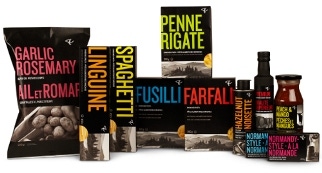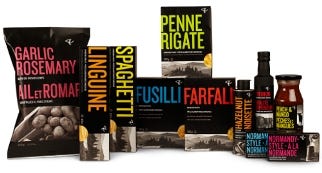Popularity of private-label packaged products persists
March 11, 2015


Private-label packaging
The just completed wave of shopper research on Private Label usage conducted by Perception Research Services (PRS), shows the vast majority of shoppers still purchase some Private Label products on a regular basis (86% - on par with the 84% seen in November 2010). This is true across income groups and other types of classification.
The latest data shows more types of Private Label being purchased as significantly more shoppers claim to have bought more Private Label products than they did in 2010 (38% vs 32%), and reported purchasing 54% more product categories (7.4 vs. 4.8).
High levels of Private Label purchases continue for paper products, cereals, cleaning products and canned and frozen vegetables. And for the first time, cookies and salty snacks have now moved into the top tier of regularly purchased Private Label products as well.
Overall, the largest gains seen for Private Label penetration were for:
•soft drinks (carbonated & non- carbonated)
•salty snacks
•frozen meals
•vitamins/medicines
•cookies
Importantly, shoppers report feeling good about buying Private Label products. Over half (51%) say they feel smart/savvy when they buy Private Label products; and very few - only 11% - say they feel self-conscious, with almost none - 3% - saying they feel embarrassed when doing so.
In some cases, shoppers are willing to go out of their way to buy some Private Label products. This is especially true at specialty stores such as Trader Joe's and Whole Foods - known for high quality, distinctive offerings. This suggests that with the appropriate level of product innovation, Private Label products can turn a retail chain into a shopping destination.
However, within typical channels, there are some categories for which shoppers are resistant to buying Private Label, as roughly one third stated they would not buy Private Label versions of each of the following:
•personal products
•vitamins/medicines
•frozen meals
It would seem these types of products represent a bit more "risk" if the product quality is sub-par and in standard venues such as Grocery and Mass (where most Private Label purchases are made), the perceived quality seems lower in these categories.
"In the major economic decline of the late 1920's, the rallying cry was 'a chicken in every pot'. In these days of ongoing financial difficulty and uncertainty, it's more like 'a Private Label product in every cupboard,'" according to Jonathan Asher, Executive Vice President of PRS.
"It used to be that buying Private Label products was a way to save a little money during the grocery trip - with many of these products bought by those in severe economic straits, or just a handful of them bought by many. Now, these products offer both cost savings and product quality across many categories, increasing their penetration and frequency as shoppers feel good about buying them - even if they don't feel the need to do so for economic reasons," he continued.
Mr. Asher states, "It seems as if creating product innovations is the key to success - for Retailers to achieve additional growth in those categories that have been met with some resistance, and for National Brand Manufacturers, who must give shoppers a meaningful reason to pay more for their offerings. In the long run, increased innovation will be a winning formula for all."
This latest wave of research was conducted in April 2012 across the U.S., among roughly 600 primary household grocery shoppers aged 18-64.
You May Also Like


